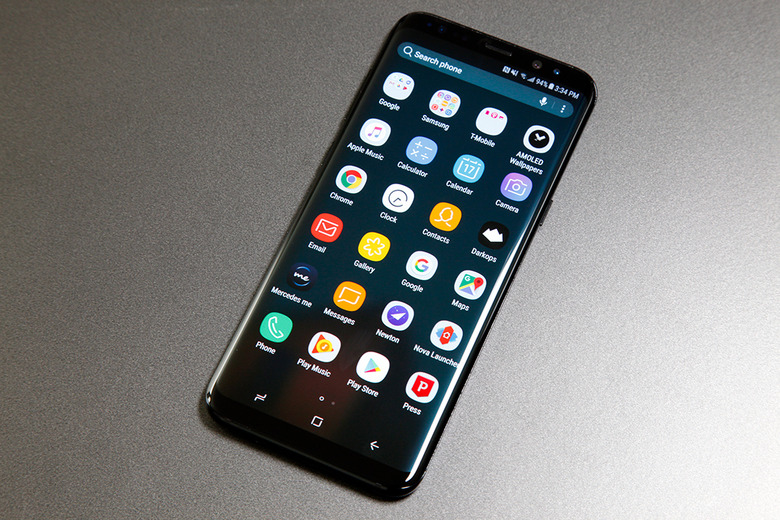The Galaxy S8 Is Cheaper Than It Should Be, Thanks To Samsung's Screw-Up
Unless you're Samsung, you should be happy the Galaxy Note 7 exploded last year. Not only was Samsung able to find some serious quality control issues and hopefully eliminate the risk of exploding batteries, but the brand new Galaxy S8 phone, available on Friday in stores, is probably a lot cheaper than it could have been.
Pricing starts at $720 for a phone that's miles better than its predecessor, and most of its competitors made so far this year, even though the handset cost $40 more to make than the Galaxy S7.
A new research note from IHS says the Galaxy S8 costs $307.50 to make, with $5.90 of that paying for basic manufacturing.
That's almost half of what the phone costs in stores, which makes the Galaxy S8's entry price even more impressive when you also factor in the freebies Samsung and its carrier partners are throwing in at launch.
IHS says the Galaxy S8 costs $43.34 more to make than the Galaxy S7 and $36.29 more than the Galaxy S7 edge. Yet Samsung did not pass these costs to buyers. Samsung will probably never explain how it came up with the final price points for its phones, but the Galaxy Note 7 must have been a major factor.
The Galaxy S8 is selling a lot better than anticipated, with some analysts already revising their estimates for the handset. It's likely that even a more expensive Galaxy S8 would have been just as popular with buyers — again, considering the various freebies and special launch deals. But given the Galaxy Note 7's sad fate, Samsung probably wanted to keep the Galaxy S8's price as close to the Galaxy S7 and the iPhone 7 as possible.
In fact, the Galaxy S8 may end up being a lot more affordable than the iPhone 8 this year, and it may all be a side-effect of those exploding batteries inside the Galaxy Note 7.
IHS estimates the iPhone 8 and Galaxy S8 will have similar hardware. But Apple's next best iPhone may cost as much as $1,000 when it launches, according to analysts.
"The higher total BOM costs for the Galaxy S8 seem to be part of a trend that reflects something of an arms race in features among Apple, Samsung and other phone manufacturers, as they all try to add new and distinguishing hardware features," IHS's senior director of cost benchmarking services Andrew Rassweller said. "While there are new non-hardware features in the Galaxy S8, such as a virtual assistant called Bixby, from a teardown perspective the hardware in the Galaxy S8 and that of the forthcoming new iPhone is expected to be very similar."
